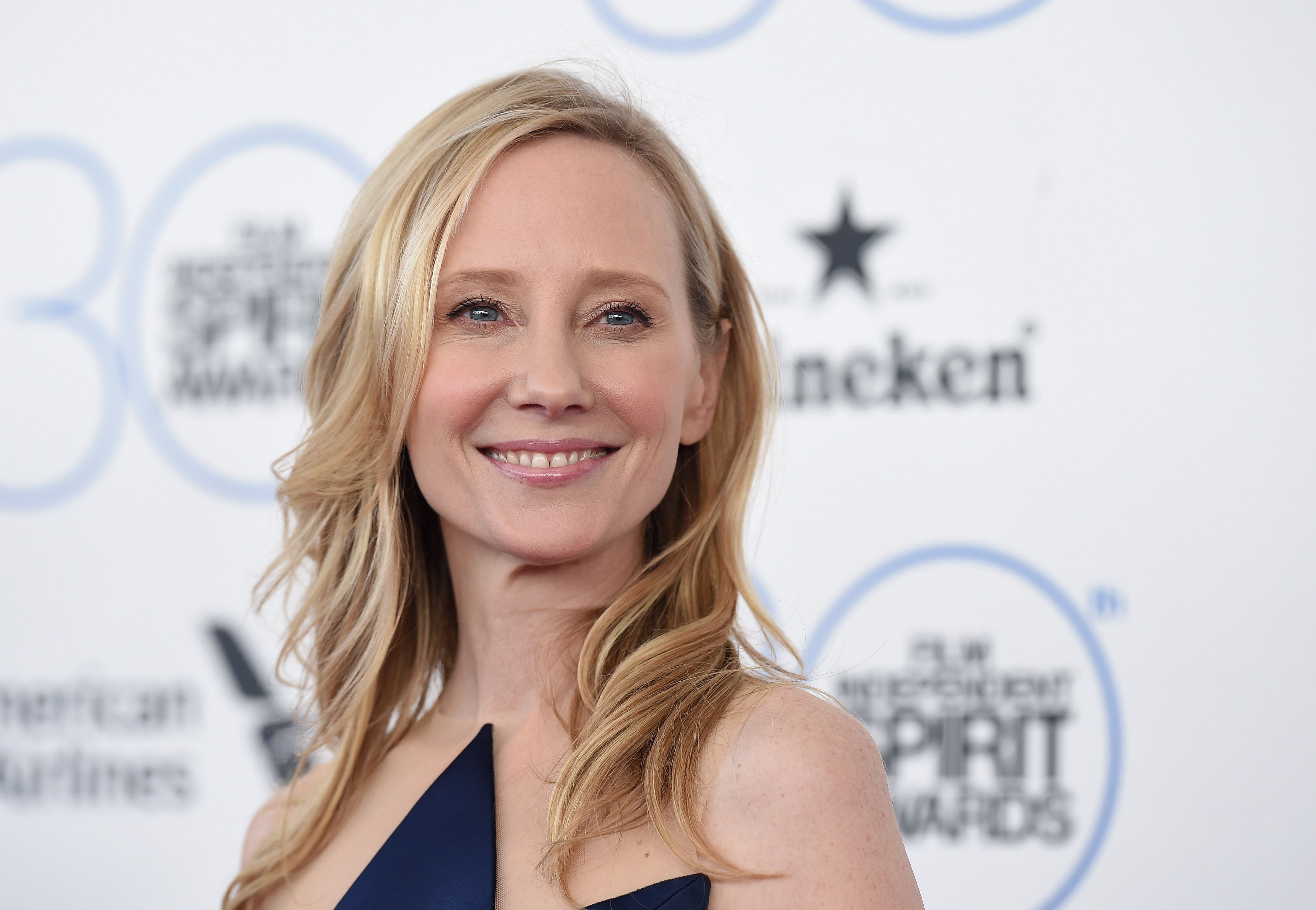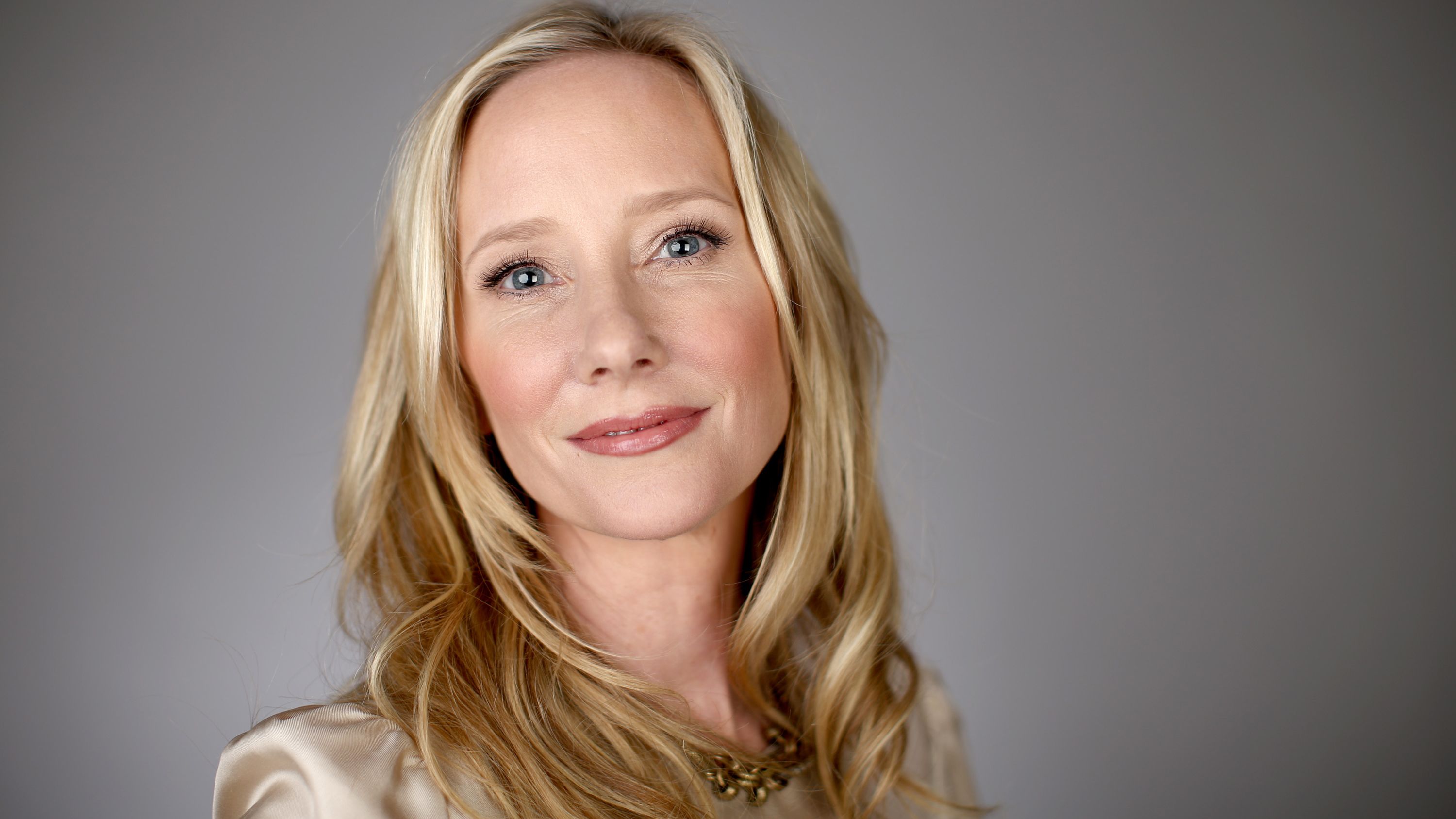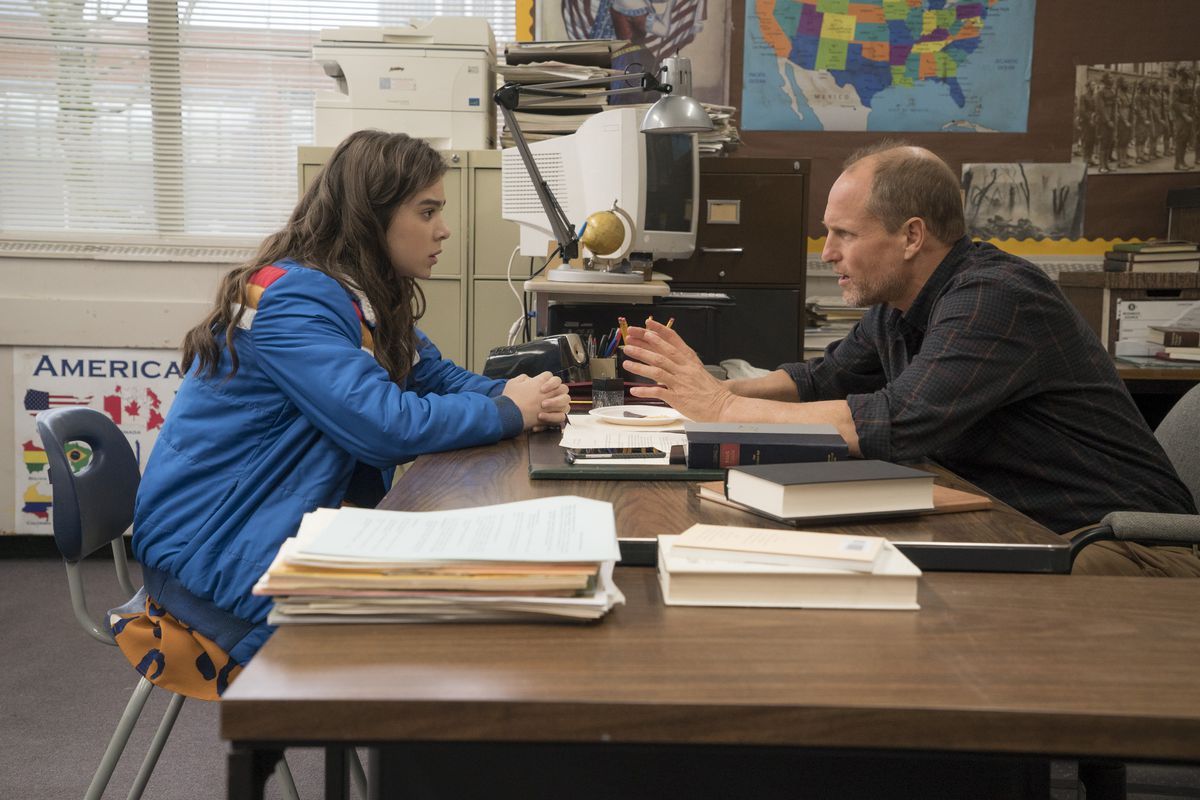
The sudden and tragic passing of Anne Heche at the age of 53 on August 11, 2022, marked the end of a remarkable life, one characterized by an extraordinary range of talent across film, television, and theater. An American actress whose career spanned several decades, Heche was a recipient of significant accolades including a Daytime Emmy, National Board of Review, and GLAAD Media Awards, in addition to earning nominations for a Tony Award and a Primetime Emmy. Her work consistently demonstrated a commitment to her craft, leaving an indelible mark on audiences and critics alike.
Yet, Heche’s professional achievements, impressive as they were, often unfolded against a backdrop of intense personal challenges and widespread public scrutiny. Her candidness about her difficult upbringing, high-profile relationships, and struggles with mental health frequently brought her into the media spotlight, creating a complex narrative that intertwined her artistic endeavors with a deeply personal journey. This duality of public acclaim and private turmoil became a defining characteristic of her life, influencing perceptions of her and, at times, impacting her career trajectory.
This in-depth article aims to explore the rich tapestry of Anne Heche’s life and career, delving into the formative experiences that shaped her, the roles that cemented her legacy, and the personal battles she bravely confronted. Through an examination of her diverse body of work and the circumstances that surrounded her, we can gain a more comprehensive understanding of an actress who, despite immense pressures, remained a singular and captivating presence in Hollywood.

1. **Early Life and Family Environment**Anne Celeste Heche was born on May 25, 1969, in Aurora, Ohio, the youngest of five children to Donald “Don” Joe Heche and Nancy Heche (née Prickett). Her early childhood was marked by frequent moves across various towns in Ohio, a consequence of her father’s unstable lifestyle and numerous “get-rich-quick schemes.” The family was raised in a deeply religious environment, with her parents being fundamentalist Christians, a situation Anne later candidly likened to being “raised in a cult.”
Despite his unstable professional life, Don Heche possessed a real gift for music, which led to jobs as a choir director in several churches. This often meant the family changed denominations multiple times, depending on where her father found work. The family’s precarious financial situation ultimately led to the foreclosure of a home and their eviction from a rental property, forcing them to move in with a church family out of charity.
Following her mother’s separation from her father, Anne and her siblings, along with their mother, took on jobs to support the family. It was during this period that Anne found her first professional acting job at a dinner theater in Swainton, earning $100 a week. This early experience foreshadowed her future career, even as her personal life was steeped in profound tragedy.
In 1983, when Anne was just 13, her father died from AIDS-related complications at the age of 45. He had kept his uality and illness a secret from his family, living as a gay man in New York. Anne reflected on this deception in a 1998 interview, stating that her father being closeted “destroyed his happiness and our family. But it did teach me to tell the truth. Nothing else is worth anything.” Just three months after her father’s death, her 18-year-old brother, Nathan, was killed in a car crash, further compounding the family’s grief.
The surviving immediate family members, including Anne, her mother, and her older sister Abigail, subsequently moved to Chicago, sharing a one-bedroom apartment that Anne described as lacking privacy and akin to living in a dorm room. Despite these hardships, Anne remained active in theater at the progressive Francis W. Parker School. At 16, a talent scout discovered her in a school play and offered an audition for the daytime soap opera, ‘As the World Turns,’ an offer she ultimately couldn’t accept due to family circumstances and the timing within her school year.

2. **Breakthrough on “Another World”**In 1987, at the culmination of her senior year, Anne Heche received another pivotal opportunity: an audition for the soap opera “Another World.” Despite her mother’s opposition to her pursuing an acting career, Heche accepted the role after two auditions, eager to begin her independent life. She moved to New York City and commenced work on the series just days after her high school graduation, marking her debut television role.
Heche famously articulated her desire for independence, stating, “I did my time with my mom in a one-bedroom, skanky apartment and I was done.” This move to New York and her immersion in professional acting represented not only a career launch but also a decisive step towards forging her own path away from a tumultuous family environment. Her commitment to her new life was clear and unyielding.
On “Another World,” Heche captivated audiences with her portrayal of the dual roles of twins Vicky Hudson and Marley Love. This challenging undertaking allowed her to showcase a significant range and depth early in her career. Her performance in these complex characters quickly earned her critical recognition within the soap opera genre.
She remained with the series for nearly four years, from 1987 to 1991, becoming a prominent figure in daytime television. Her dedication and talent were formally acknowledged when she received a Daytime Emmy Award for Outstanding Younger Actress in a Drama Series in 1991, a significant honor that validated her decision to pursue acting and signaled her burgeoning potential in the industry.

3. **Transition to Film and Early Critical Notice**Upon leaving “Another World” in 1991, Anne Heche found herself at a crossroads, uncertain about her future in acting. Having not taken on other onscreen roles during her tenure on the soap opera, and with no immediate acting jobs lined up, she knew she did not wish to continue in soap operas, a genre often considered less significant in the broader professional acting world. As a contingency, she even applied to and received an offer of acceptance from Parsons School of Design in New York City, considering a different creative path.
However, destiny intervened shortly after her design school application. She was offered a small supporting role in the Hallmark Hall of Fame television film adaptation of the Willa Cather novel “O Pioneers!,” starring Jessica Lange. Heche chose to seize this opportunity, opting to continue her career as an actress rather than attend design school. This decision proved to be a critical turning point, redirecting her focus towards film and more diverse acting ventures.
It was while she was in Nebraska, filming “O Pioneers!,” that Heche received news of her Daytime Emmy Award for her work on “Another World.” Her incredulous response in a telephone call with her agent—”Does this mean I’m an actress?”—highlighted her genuine surprise and the nascent recognition of her talent. Her agent then suggested a move from New York City to Los Angeles, a relocation she promptly made days after completing the film. “O Pioneers!” aired in February 1992, becoming her first TV movie and garnering some positive critical notice for her performance.
Prior to “O Pioneers!” airing, Heche made her primetime television debut with a guest appearance in an episode of “Murphy Brown” in November 1991. Despite this, she soon felt that frequent guest spots on television episodes could be detrimental to her long-term career success, a conviction that led her to largely avoid such roles until the 2000s. She also engaged in Los Angeles theater productions in 1991 and 1992, starring in pieces like “Us & Them” and “Getting Away With Murder.” Her theatrical film debut came in early 1993 with the independent film “An Ambush of Ghosts,” directed by Everett Lewis, followed by an appearance in the Disney film “The Adventures of Huck Finn” alongside Elijah Wood, solidifying her presence in the burgeoning film landscape.

4. **From Supporting Roles to “Wild Side” and “If These Walls Could Talk”**Over the next two years, following her initial forays into film, Anne Heche continued to build her resume with a mix of bit parts in feature films, such as “A Simple Twist of Fate” (1994), and more substantial supporting roles in cable television movies. These television productions included “Girls in Prison” (1994) and “Kingfish: A Story of Huey P. Long” (1995), allowing her to hone her craft across various mediums and genres. Her dedication to continuous work was evident as she navigated the competitive landscape of Hollywood.
In 1995, Heche took on her first lead role, albeit receiving third billing, in Donald Cammell’s straight-to-video erotic thriller, “Wild Side.” In this film, she starred alongside Christopher Walken and Joan Chen. The movie garnered particular notoriety for its inclusion of a very strong lesbian scene between Heche and Chen, a role that brought her a certain degree of public attention and demonstrated her willingness to explore boundary-pushing characters early in her career.
Continuing her work in cable television, 1996 saw Heche star in a segment of the HBO anthology film “If These Walls Could Talk.” She played a college student grappling with the weighty decision of an abortion, co-starring with Jada Pinkett Smith and Cher. This role showcased her ability to tackle sensitive and relevant social issues with depth and nuance, further expanding her dramatic repertoire.
That same year, Heche also appeared opposite Catherine Keener in the independent film “Walking and Talking,” portraying childhood best friends. The limited-release film was met with favorable reviews from critics and has since earned a place on Entertainment Weekly’s “Top 50 Cult Films of All-Time” list. Film critic Alison Macor of The Austin Chronicle notably praised Heche’s performance, writing in her review that she “is destined for larger film roles,” a prescient observation that would soon prove true as her career was on the cusp of a significant breakthrough.

5. **Career Breakthrough in 1997**1997 proved to be a pivotal year for Anne Heche, marking what has widely been described as her career breakthrough. She garnered significant attention for her role in the hit crime drama “Donnie Brasco,” where she portrayed the wife of the main character, an FBI undercover agent played by Johnny Depp. Her performance in what could have been a supporting, overlooked part earned her praise, with critic Janet Maslin of The New York Times noting that Heche “does well with what could have been [a] thankless role.”
Building on this momentum, Heche continued to find recognition and commercial success through appearances in three other high-profile film releases that same year. She joined the cast of the disaster film “Volcano,” starring with Tommy Lee Jones and Gaby Hoffmann as a seismologist. While critical response to the film was mixed, it was a box office success, grossing US$122 million internationally, further solidifying her presence in mainstream cinema.
Her versatility was further demonstrated in the slasher thriller sleeper hit “I Know What You Did Last Summer,” where she played the minor role of a backwoods loner alongside Jennifer Love Hewitt, Sarah Michelle Gellar, Ryan Phillippe, and Freddie Prinze Jr. Despite her limited screen time in the film, Heche was considered a “standout” by some reviewers, including Derek Eller of Variety, showcasing her ability to make an impact even in smaller roles.
Rounding out her banner year, Heche obtained a significant part in the political satire “Wag the Dog,” appearing opposite cinematic heavyweights Robert De Niro and Dustin Hoffman. Intriguingly, her role as a presidential advisor was originally written for a man. The film, budgeted at US$15 million, grossed a respectable US$64 million. Her remarkable work in both “Donnie Brasco” and “Wag the Dog” was collectively honored with the National Board of Review Award for Best Supporting Actress in 1997, a testament to her undeniable talent and burgeoning star power.

6. **Leading Roles and Public Scrutiny of Her Relationship**The peak of Anne Heche’s commercial success arrived in 1998, when she secured her first lead role in a major film, the romantic adventure “Six Days, Seven Nights.” In this production, she starred opposite Hollywood icon Harrison Ford, portraying a New York City journalist who finds herself stranded on a deserted island with a pilot, played by Ford, after a crash landing. This was a significant step in her career, positioning her as a leading lady in a major studio release.
However, the circumstances surrounding her casting and the film’s release were intertwined with a deeply personal development that brought immense public scrutiny. Heche had been cast in “Six Days, Seven Nights” just one day before her same- relationship with comedian Ellen DeGeneres became public. This highly publicized relationship, described by The Advocate as establishing them as “the first gay supercouple,” instantly propelled Heche into an unprecedented level of media attention.
Heche later articulated her belief that her relationship with DeGeneres significantly hampered her career prospects as a leading woman. She candidly recalled, “People said, ‘You’re not getting a job because you’re gay.'” She struggled to comprehend the impact, stating, “How could that destroy my career? I still can’t wrap my head around it.” This sentiment highlighted the profound professional fallout she felt as a result of her public romance.
Despite the personal challenges and alleged professional pushback, “Six Days, Seven Nights” performed adequately at the box office, receiving mixed reviews but grossing US$74.3 million in North America and US$164.8 million worldwide. However, Heche would later claim that she did not work in a studio picture for 10 years afterward, a period she attributed to the industry’s reluctance to cast her in major roles due to her public relationship. This demonstrated the significant and often unseen impact of personal life on professional trajectory in Hollywood during that era.




